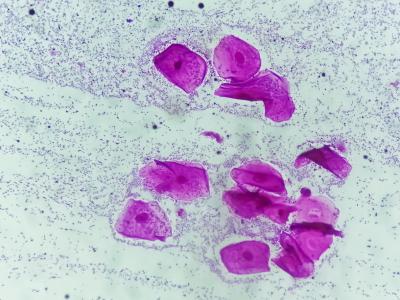Apr 2, 2010
Proposed quarantine rules for air travel dropped
The Obama administration has quietly dropped plans for new quarantine regulations, proposed in 2005, that would have increased the government's authority to detain airline passengers and required airlines to collect more contact information about passengers, USA Today reported. The regulations would have empowered the Centers for Disease Control and Prevention (CDC) to detain passengers for up to 3 business days if they were believed to have any of nine diseases, including pandemic influenza and tuberculosis, the story said. In addition, airlines would have been required to collect and maintain contact information on passengers in case officials needed to reach them in a disease investigation. The Air Transport Association, which represents US air carriers, had objected to the regulations as overly burdensome and costly, and the American Civil Liberties Union also opposed them on privacy grounds. The Department of Health and Human Services withdrew the rules on Jan 2, the story said. A CDC official told the newspaper it had become clear that "further revision and reconsideration is necessary to update the regulations." The proposed rules were prompted mainly by the experience with SARS (severe acute respiratory syndrome) in 2003, the CDC said when it unveiled the plan in November 2005.
Apr 1 USA Today report
2005 CIDRAP News report on original proposal
2008 CIDRAP News report on challenge of tracing at-risk passengers
WHO reports meningococcal disease epidemic in Chad
From Jan 4 through Mar 28 Chad's health ministry has recorded 1,531 cases of suspected meningococcal disease, 151 of them fatal, for a case-fatality rate of 10%, the World Health Organization (WHO) said yesterday. Seven districts have passed the epidemic threshold, while three others have crossed the alert threshold. Laboratory analysis of specimens that have tested positive for Neisseria meningitides has found two different serogroups, suggesting a mixed epidemic in some areas of Chad. Several global health organizations are assisting with vaccination campaigns and disease-control activities. International groups have provided 157,000 doses of trivalent vaccine for affected areas of Dono-Manga and Goundi districts, as well as 282,000 doses of trivalent vaccine for Doba and Bebidja districts. Chad's last meningococcal disease outbreak occurred at the end of 2008 and into early 2009, according to earlier WHO reports. The country is one of several that make up Africa's "meningitis belt."
Apr 1 WHO statement
Hong Kong, Bulgaria find H5N1 in wild birds
Two governments have recently confirmed the avian influenza H5N1 virus in wild birds that were found dead. Hong Kong's agriculture, fisheries, and conservation department (AFCD) yesterday said a dead barn swallow was found in Yuen Long, according to a press release. Meanwhile, Bulgarian officials yesterday reported that they confirmed the H5N1 virus in a buzzard found dead near Varna, a Black Sea coast resort town in the northeastern part of the country, according to a report from the World Organization for Animal Health (OIE).
Apr 1 AFCD press release
Apr 1 OIE report
Bacterium may halt dengue transmission
Introducing the bacterium Wolbachia into the mosquito species that transmit dengue fever to humans may provide a nonmedical method for controlling the disease, Michigan State University researchers say in the online journal Public Library of Science (PLoS) Pathogens. Wolbachia, a symbiote, naturally infects a number of mosquito species, but not the Aedes aegypti that transmit dengue. The researchers introduced the bacterium into an experimental population of A aegypti that they maintained in their lab. Two weeks after administration, 37.5% of mosquitoes that had been infected with Wolbachia and were also carrying dengue were unable to transmit the dengue virus, and 40% showed no sign of the virus when their tissues were analyzed. The technique shows promise because Wolbachia spreads rapidly in mosquitoes, infecting an entire population in seven generations, but the researchers say more research is needed to understand how the bacterium exerts its mediating effect.
Apr 1 PLoS Pathogens article





















